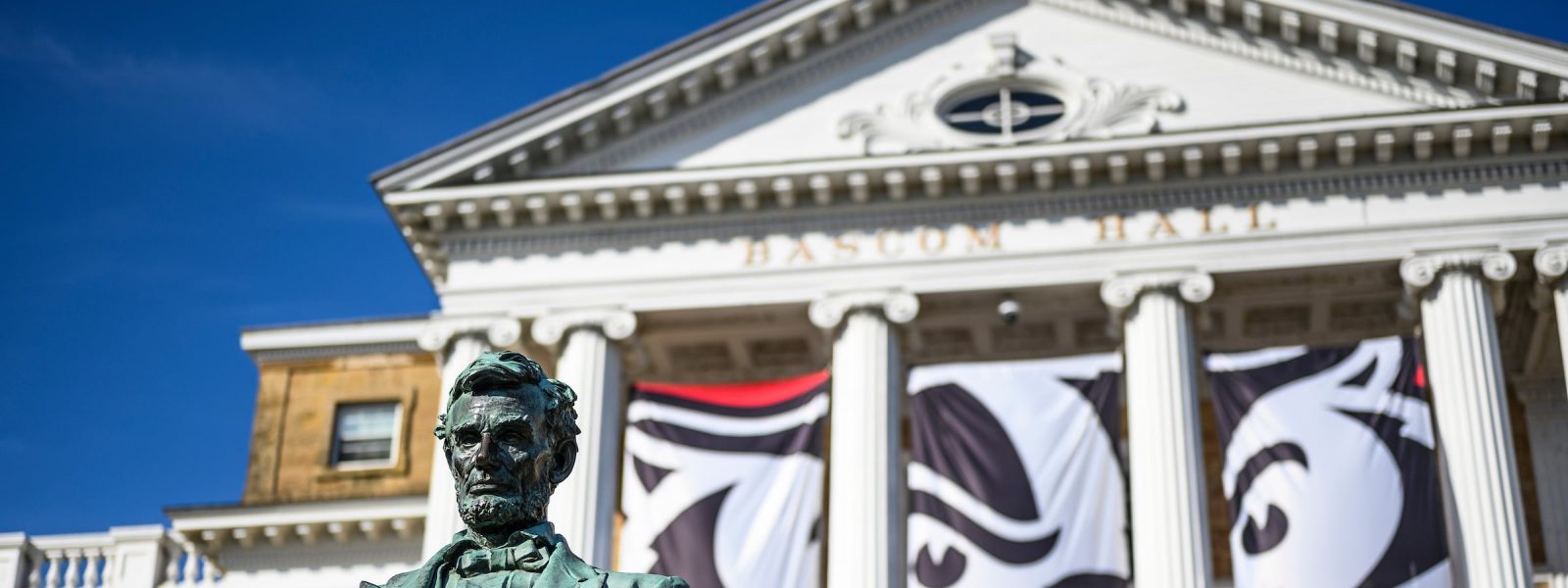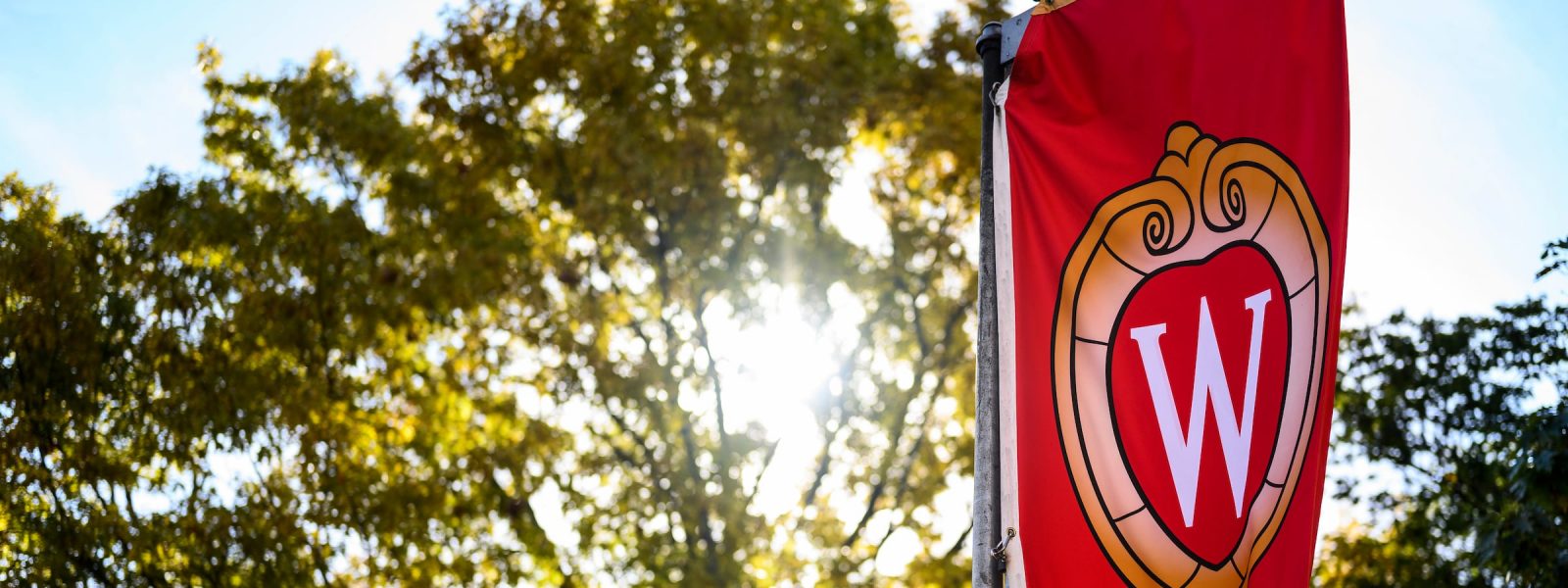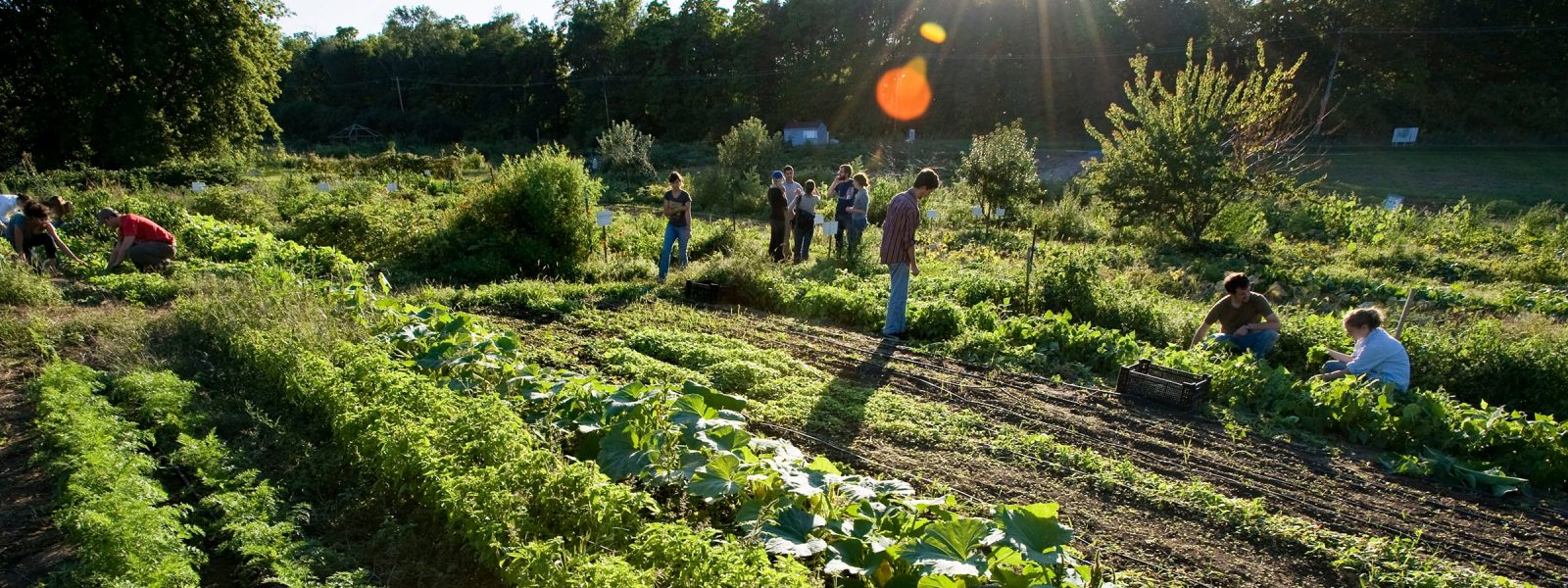A High-Performing Organization
Practice continuous improvement in all we do, for those we serve.

1. Strengthen our financial performance, growing revenues, controlling costs, and delivering new and innovative ways to invest in our strategic priorities, while maintaining a commitment to the highest ethical standards.
Example initiatives:
Administrative Transformation Program
The UW is proactively responding to the rapidly evolving higher-education landscape through the Administrative Transformation Program. The program is forming solutions to reduce administrative complexity, build a nimble infrastructure that can respond to change, and strengthen data availability, financial controls, and information security.
Revenue Innovation
UW–Madison is pursuing new revenue sources to reinvest in strategic priorities. The (re)development of university-owned real estate assets represents one opportunity to maximize campus resources in support of our mission.
All Ways Forward Campaign
In 2021, the UW completed the All Ways Forward comprehensive fundraising campaign. More than 265,000 alumni and friends collectively contributed nearly $4.3 billion during the 8.5 year campaign. These funds have supported thousands of student scholarships, established hundreds of new faculty chairs and professorships to attract and retain the best faculty in the world, supported research innovation and the educational experience and built state-of-the-art facilities. The ongoing Raimey-Noland and Wisconsin Medicine campaigns continue to raise critical philanthropic support to sustain our world-class university.
IT Optimization and Innovations
The UW is investing in information technology that fosters global collaboration, cutting-edge research, and a personalized educational experience. The strategic use of technology and data is developing more efficient administrative processes on campus. Efforts include standardized IT systems, shared cloud storage, and collaborative tools.
Compliance Initiatives
The UW Office of Compliance promotes ethical conduct and compliance with applicable state and federal laws, regulations, and policies. In particular, the office seeks campus compliance with the Americans with Disabilities Act, HIPAA privacy, Title IX of the Education Amendments, Title VI and Title VII of the Civil Rights Act, and the Wisconsin Public Records Law.

2. Build upon and further support our high-quality and committed workforce that advances our mission and reflects our values.
Example initiatives:
Faculty Diversity Initiative
It’s the UW’s practice to recruit applicants whose creative work and research, teaching, and service will contribute to the diversity of the campus community. To help departments diversify their faculty, the Faculty Diversity Initiative provides support in the form of funds for hiring and outreach.
Title and Total Compensation Project
The Title and Total Compensation Project is a comprehensive HR effort to modernize the university’s title, pay, and benefits programs. To help recruit and retain outstanding employees, the project will create clear, consistent, and relevant job titles and descriptions; market-based pay and benefit structures; and a framework for career development.
Finance and HR Job Rotation Program
The UW’s Job Rotation Program places participants in finance and HR departments and functions across campus with a series of rotations over two years. The program enables career growth by providing early career professionals with a broad set of experiences, while benefiting the university by developing a strong talent bench of administrators.
Professional Development Programs
The Office of Human Resources offers specialized professional development opportunities to all UW faculty and staff. Education, training, onboarding, workforce planning, and career development are critical to UW–Madison’s long-term success.
Student Employment: WiGROW Program
Several cross-functional units on the campus across VCFA and VCSA sponsor and track progress on the student employee development program known as WiGROW — (Guided Reflection on Work). Supervisor training is offered that encourages conversations each semester with each student employee in these units around topics such as learning outcomes, transferrable skills and job-readiness.

3. Expand and deepen relationships with key partners and stakeholders critical to our success and maintain our commitment to shared governance.
Example initiatives:
State Relations
The Office of State Relations is a consistent presence at the Wisconsin State Capitol, advocating for the UW’s interests and demonstrating its value to the citizens of the state. The staff builds relationships while developing strategies to advance the UW’s priorities with the state legislature, the governor, and other state agencies.
Federal Relations
The Office of Federal Relations advocates on federal policies and issues that affect the UW, serving as the primary liaison between the university and the federal government. The staff works to advance the UW’s interests in Washington, DC, and shares policy and funding developments that may impact the university’s research, education, and outreach efforts.
Community Relations
The Office of Community Relations serves as the primary liaison between the university and the local Madison community. The staff serves on many city and county committees and is committed to providing access to the university’s grounds, resources, and experts through initiatives like the South Madison Partnership.
Community Advisors
The Chancellor’s Community Advisors group was formed in 2016 to strengthen relationships with campus and community partners. Members meet regularly to discuss campus climate issues and serve as liaisons to community members to ensure their voices are heard.

4. Practice sustainability principles in the stewardship of campus resources, recognizing our environmental responsibility to people and the planet.
Example initiatives:
Office of Sustainability
The Office of Sustainability works with units across UW–Madison to integrate sustainable practices in their work and efforts. The UW’s recent honors include becoming the second school in the Big Ten to be designated as a Fair Trade University and ranking among the top 30 college and university partners of the EPA’s Green Power Partnership.
STARS Rating and Strategic Plan
In 2019, the UW’s first broad sustainability assessment earned the campus a silver rating for its efforts in resource stewardship, education, and research, according to the national Sustainability Tracking, Assessment and Rating System (STARS) report. The evaluation is helping the UW establish a more comprehensive sustainability plan for campus. The Office of Sustainability will complete the university’s second STARS assessment by summer 2022.
Transforming the Built Environment
UW–Madison’s facilities serve as the foundation for its vibrant campus community. To ensure the built environment continues to support its academic, research, and outreach mission, the university has launched a multi-year initiative that incorporates detailed facility assessments, financial strategies, and smart technology. Using a collaborative approach, community input and sustainable integration, UW–Madison will deliver buildings and spaces that support future generations of Badgers.
Sustainability Efforts at University Housing
The UW’s Division of University Housing is employing a holistic approach to sustainability and employing environmentally responsible practices throughout its operations. The efforts are significantly reducing waste and energy use in housing facilities and dining halls.
Green Fund Program
The UW’s Green Fund supports student-initiated projects that address the environmental footprint, social impact, and operating costs of campus facilities. The program has supported solar-panel installation, an energy-efficient greenhouse cooling system, a water-efficient toilet retrofit, a compost collection program, and other projects.